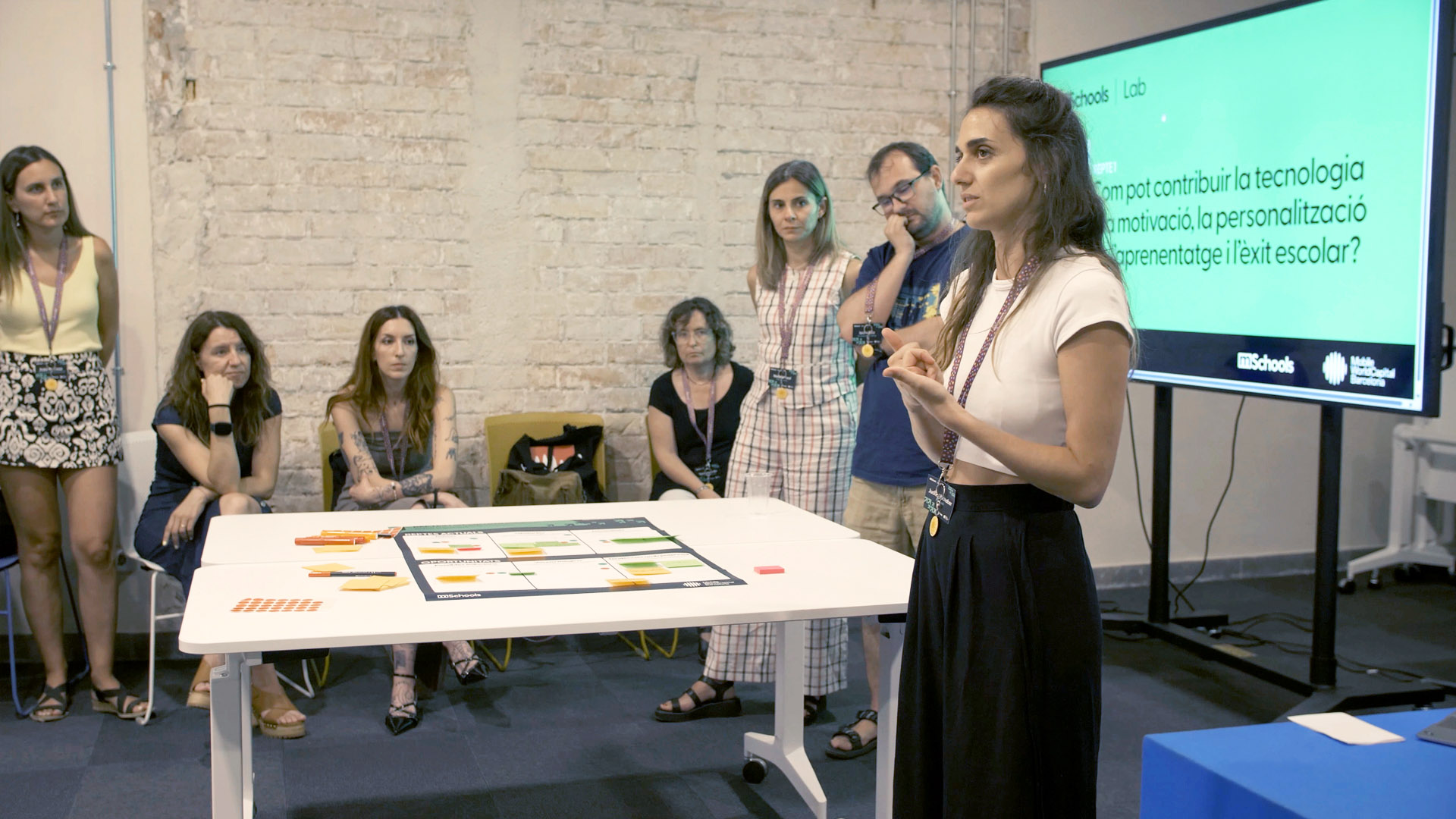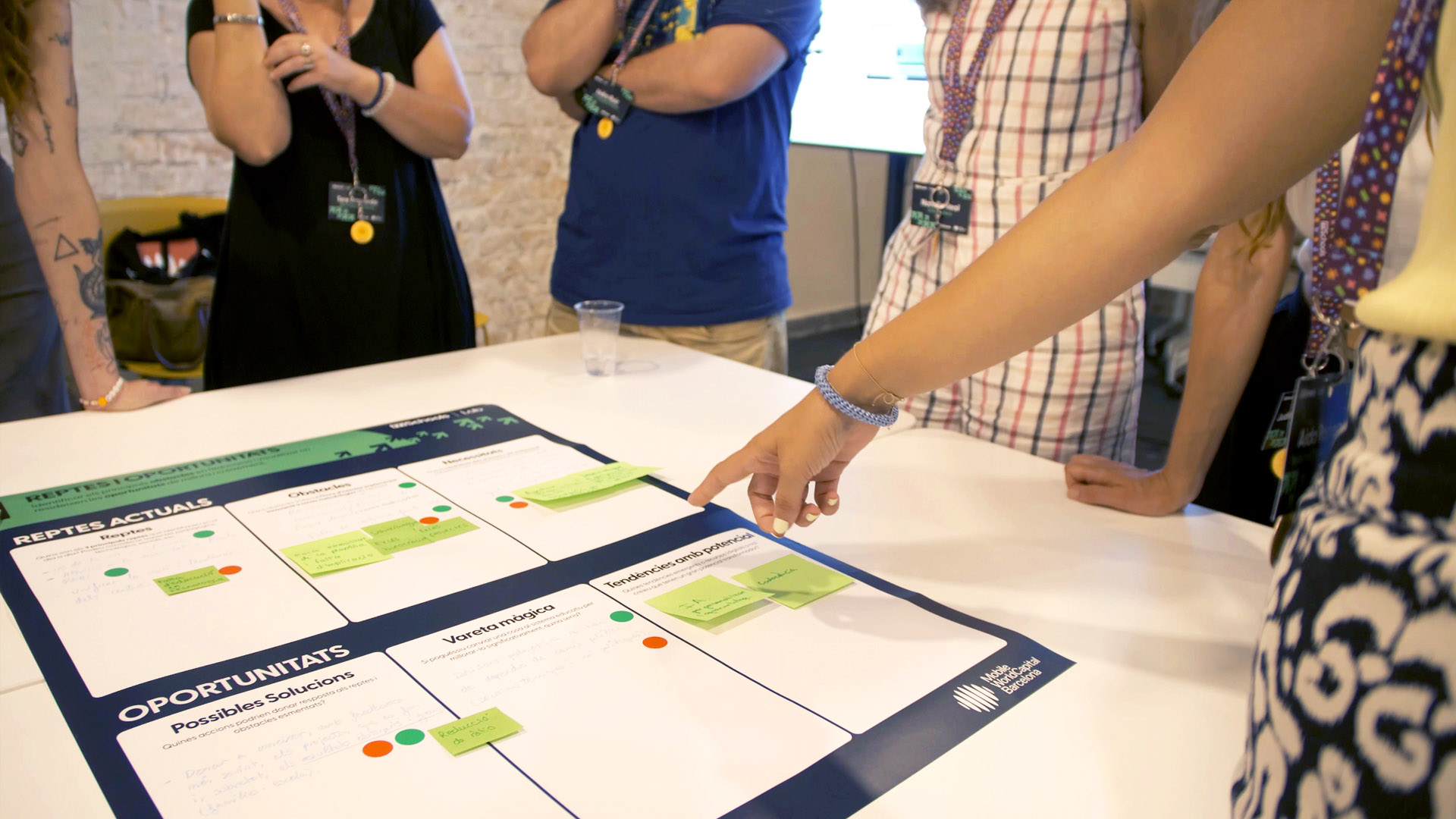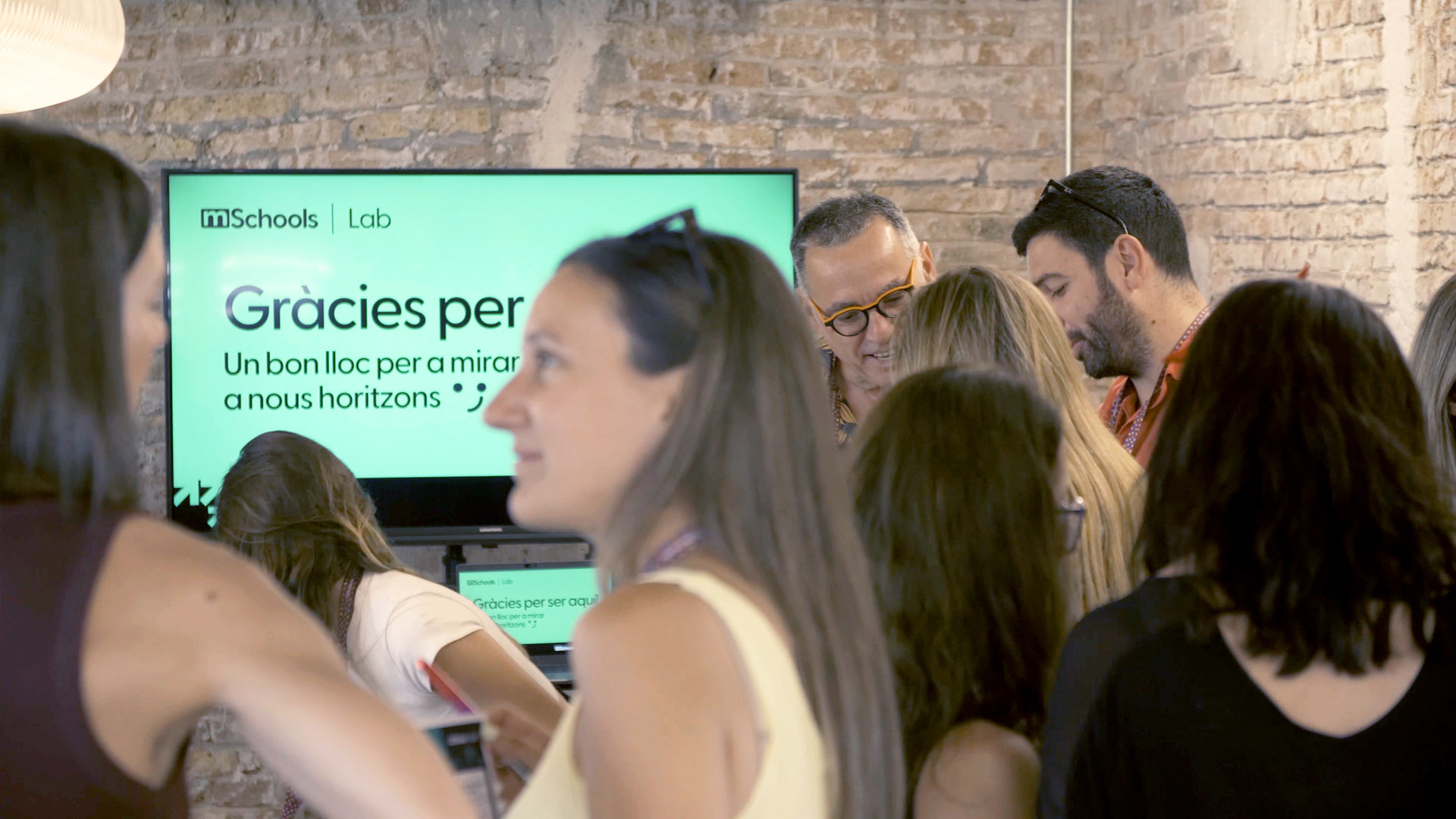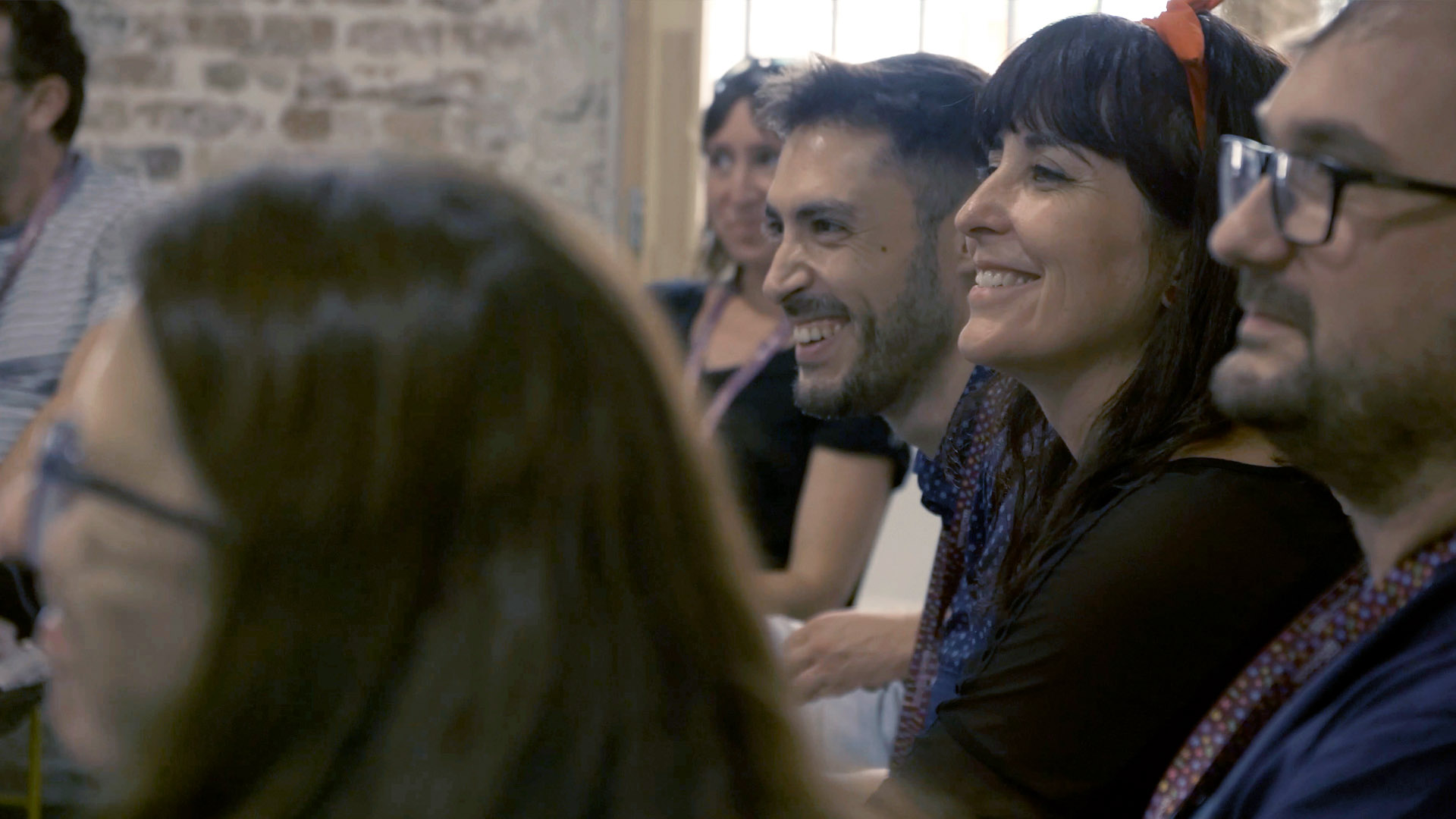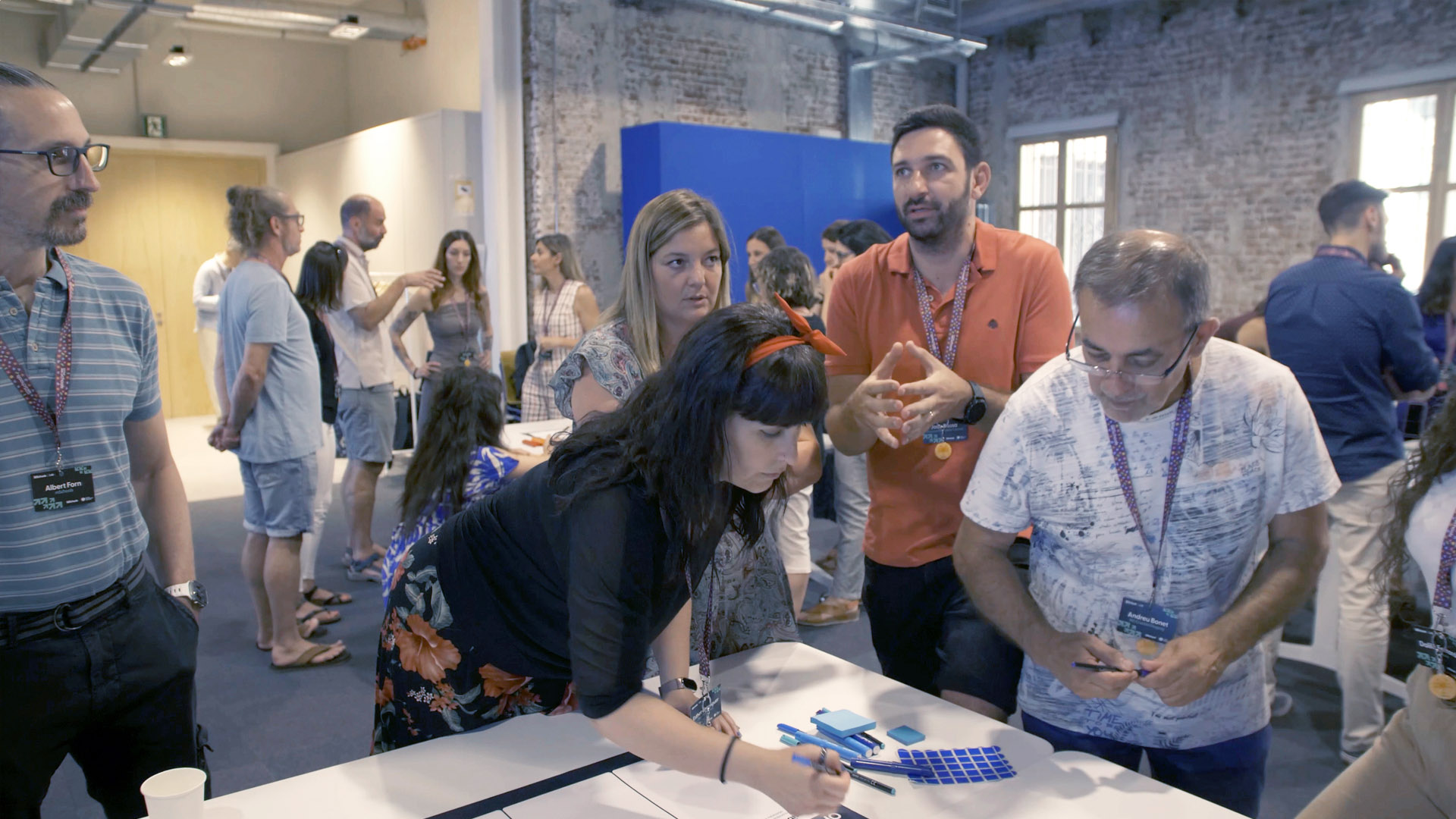Identification, piloting and impact assessment of digital solutions with the potential to improve and digitally transform education
- 1. The Challenge
- 2. EdTech Solutions Call
- 3. Finalists and Winners
- 4. Piloting
- 5. Closing
In December 2023 we launched the first call to identify innovative digital solutions at national and international levels to answer the challenge:
How can technology contribute to motivation, personalised learning approaches, and academic success?
In recent years, society has changed profoundly and rapidly, and this has not necessarily shown in the practices and content of educational institutions.
In 2022, with 13.9%, Spain topped the early school dropout rates in the European Union, which went hand in hand with poor academic performance. Experts partly attribute this failure to the Spanish education system’s absence of flexibility and excessive rigidity. Within schools, learning paths tend to be uniform to comply with a single curriculum for all and do not respond to diverse and personal contexts, interests or objectives.
Educational success and learning are correlated, among other factors, with motivation. Motivation increases, for example, through personalised learning approaches or if learnings are meaningful and provide personal value to the learner, contributing to their self-knowledge, a better understanding of their reality and the active construction of a future with scenarios that involve them and enhance their capabilities.

The Lab Process
Definition of a concrete challenge
Open call for solutions
Selection of winners
Adaptation and planning of pilots
Implementation of pilots
Evaluation and dissemination
Collaboration
mSchools Lab is an open innovation program promoted by Mobile World Capital Barcelona Foundation and mSchools. Its goal is to foster collaboration between educational centres and the EdTech industry to respond to the educational communities' real needs through technology's transformative, safe and healthy use.
Through public-private partnerships, we advance the identification, piloting and impact evaluation of digital solutions with the potential to contribute to improving and digitally transforming education.
We want to catalyze the collaboration of all stakeholders with the possibility to contribute from different perspectives to digitally transform and positively impact equitable and inclusive learning.
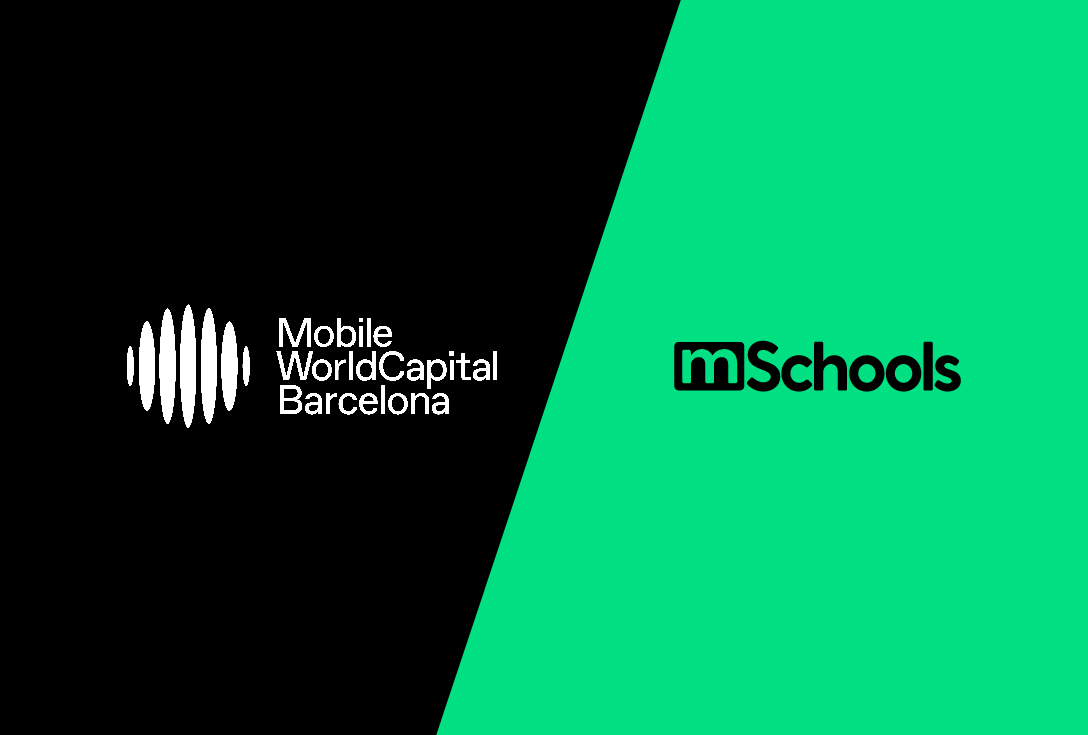
In December 2023 we launched the first call to identify innovative digital solutions at national and international levels to answer the challenge:
How can technology contribute to motivation, personalised learning approaches, and academic success?
In recent years, society has changed profoundly and rapidly, and this has not necessarily shown in the practices and content of educational institutions.
In 2022, with 13.9%, Spain topped the early school dropout rates in the European Union, which went hand in hand with poor academic performance. Experts partly attribute this failure to the Spanish education system’s absence of flexibility and excessive rigidity. Within schools, learning paths tend to be uniform to comply with a single curriculum for all and do not respond to diverse and personal contexts, interests or objectives.
Educational success and learning are correlated, among other factors, with motivation. Motivation increases, for example, through personalised learning approaches or if learnings are meaningful and provide personal value to the learner, contributing to their self-knowledge, a better understanding of their reality and the active construction of a future with scenarios that involve them and enhance their capabilities.
Focus of solutions
1. Students motivation
2. Improvement of personalised learning approaches
3. Lifelong learning
4. Academic success and reduction of school dropout rates
What do we offer?
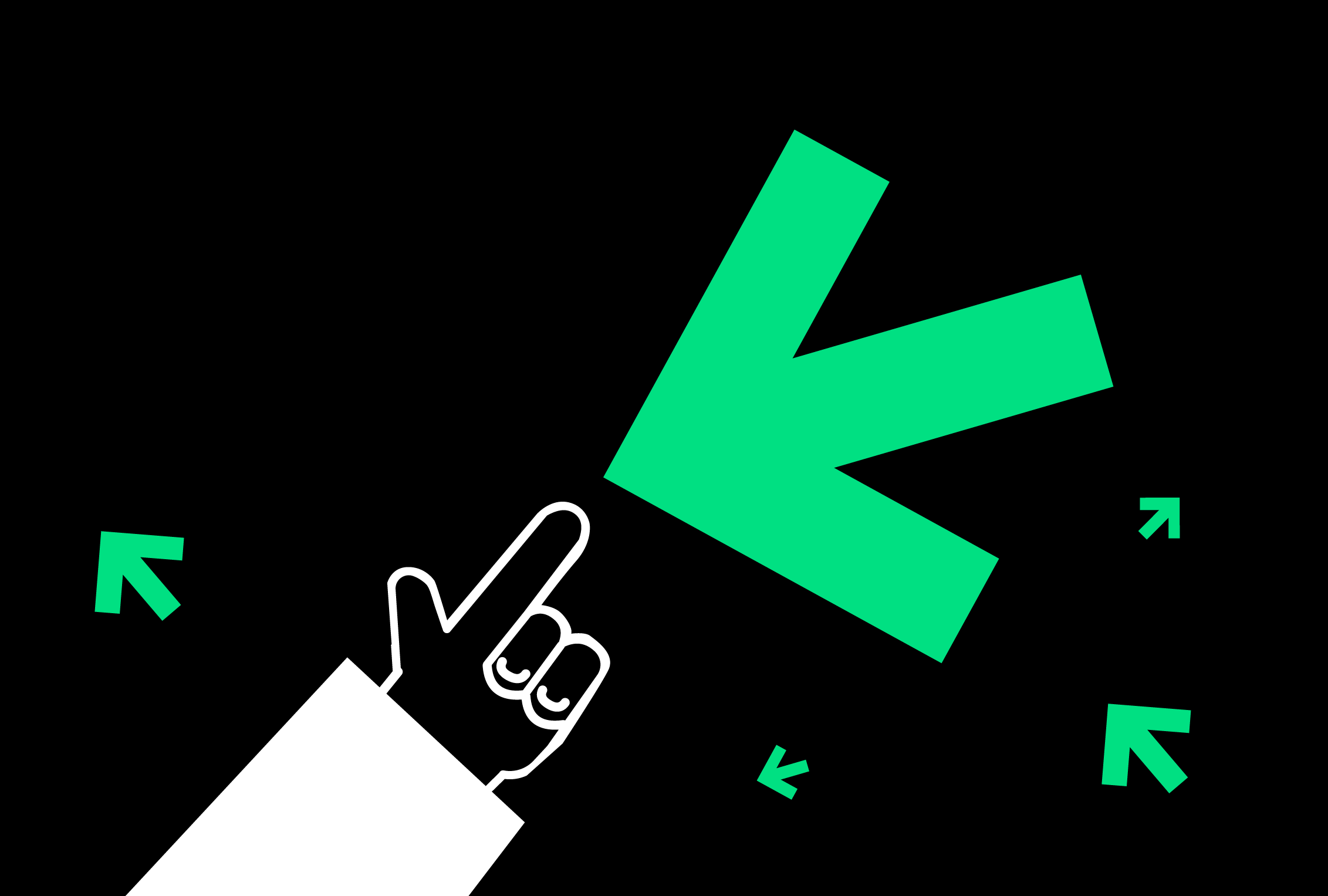
How to participate?
The call for proposals has ended and we are in the midst of the evaluation process.
At the end of March, we will announce the two winning solutions.
If you want to know about future calls sign up in the following form.
Resources of interest
Terms and Conditions 23-24
Winning Solutions
Annie Advisor
Helsinki
Annieadvisor.com
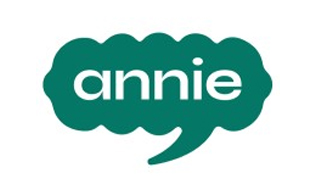
“Troba la insígnia per al teu futur" Nexes Interculturals / Cities of Learning
Barcelona / Global
Nexes.cat
Global.cityoflearning.eu
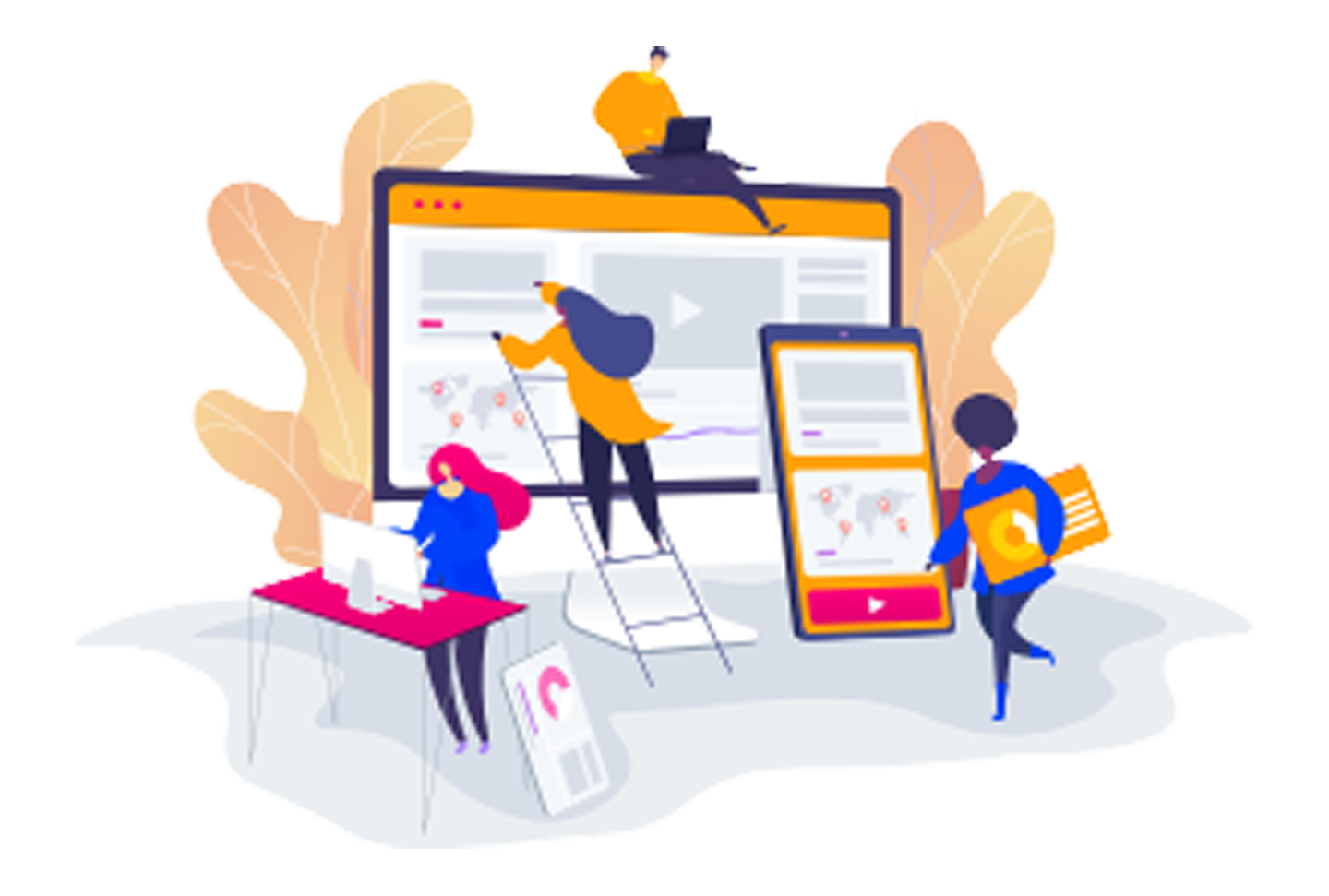
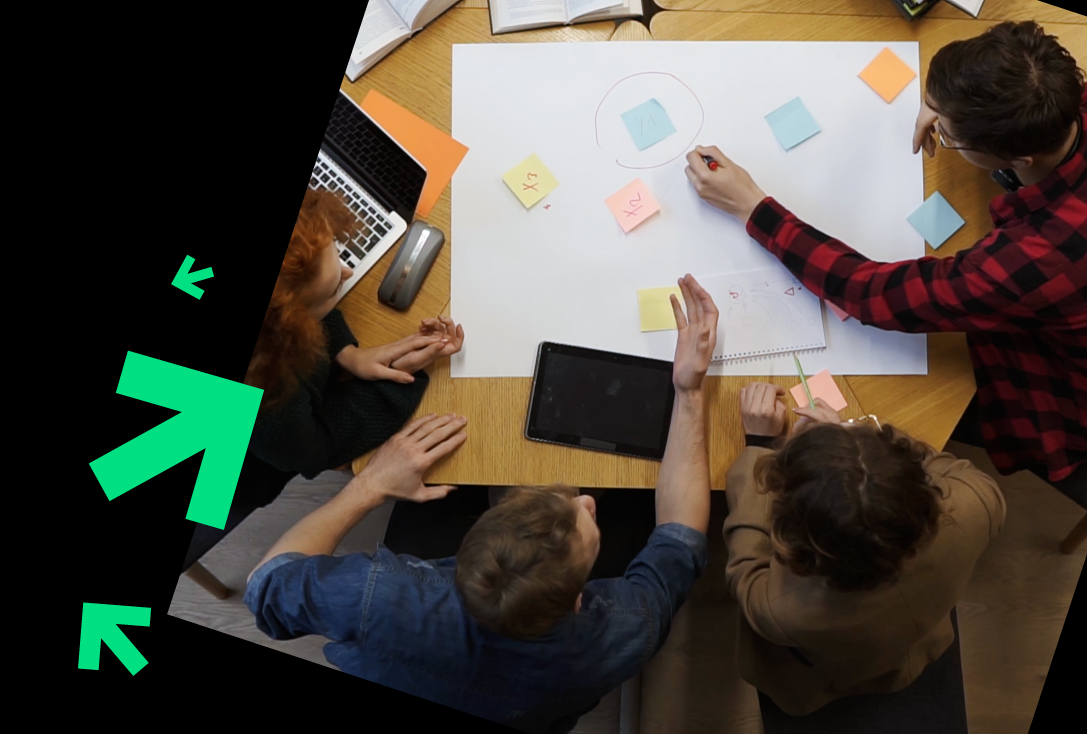
Piloting of the winning EdTech solutions
If you are part of a public or charter school in Catalonia that includes grade courses from 3rd and 4th Compulsory Secondary Education, and you are interested in participating in the piloting of one of the two solutions during the school year 2024-2025, for a period of 6 to 9 months, please fill in the following form.
Completing this form does not commit or bind you in any way; it is simply an overview of all the centers that have shown interest in order to further analyze the sample.
This will help us get to know you better and ensure that the sample of centers is varied and diversified. It will also allow you to reflect on some important parameters for the pilot.
Finalists
EduKimple
Madrid and Barcelona
Edukimple.com
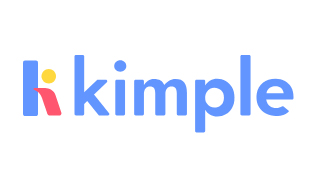
FirtEdu
Barcelona
FirtEdu.com
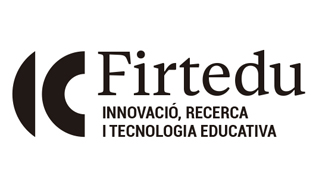
KitCo Valley
Barcelona
TuKitCo.net
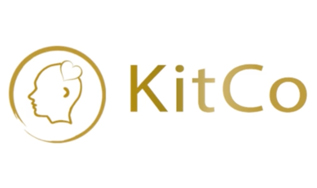
Project Invent
San Francisco
ProjectInvent.org
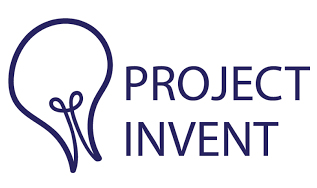
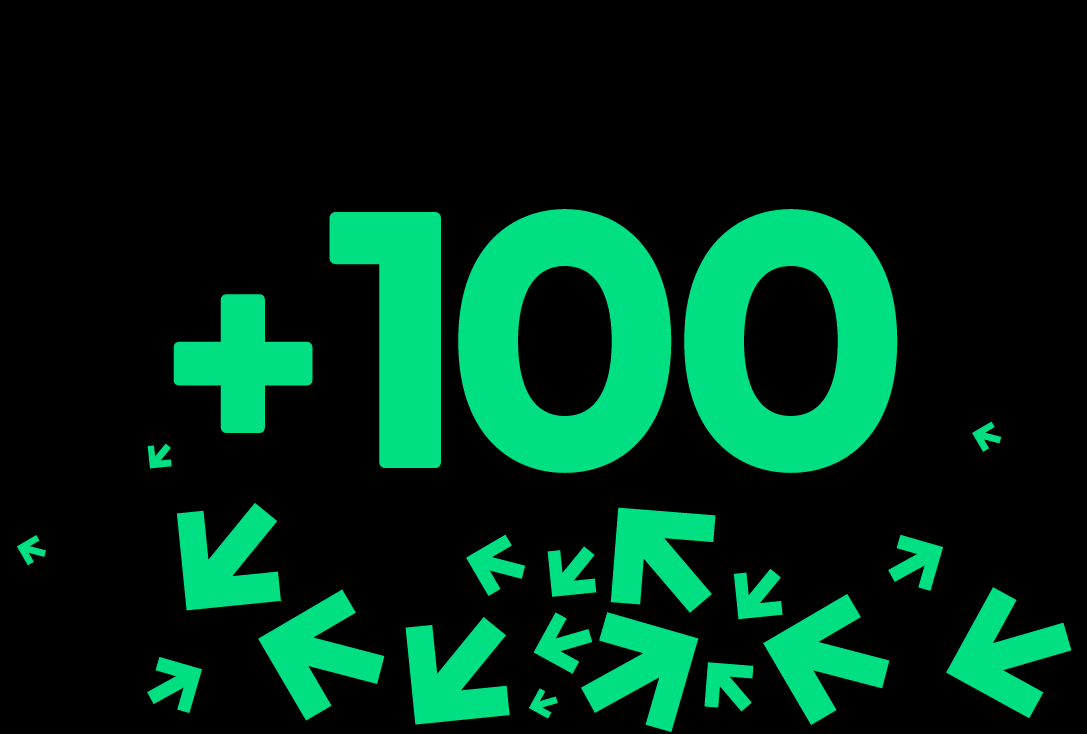
More than 100 proposals
With the first phase of the initiatives selection closed, we have confirmed the Call's success with more than 100 proposals from around the world, a figure that reflects the existence of a large and vibrant EdTech ecosystem.
National and international ecosystem
International participation of 41%, with the presence of proposals from the United States, Europe, Africa, Latin America, the United Kingdom, Canada, India and Asia. On the other hand, we want to highlight the national participation of 59% most of them from Barcelona.
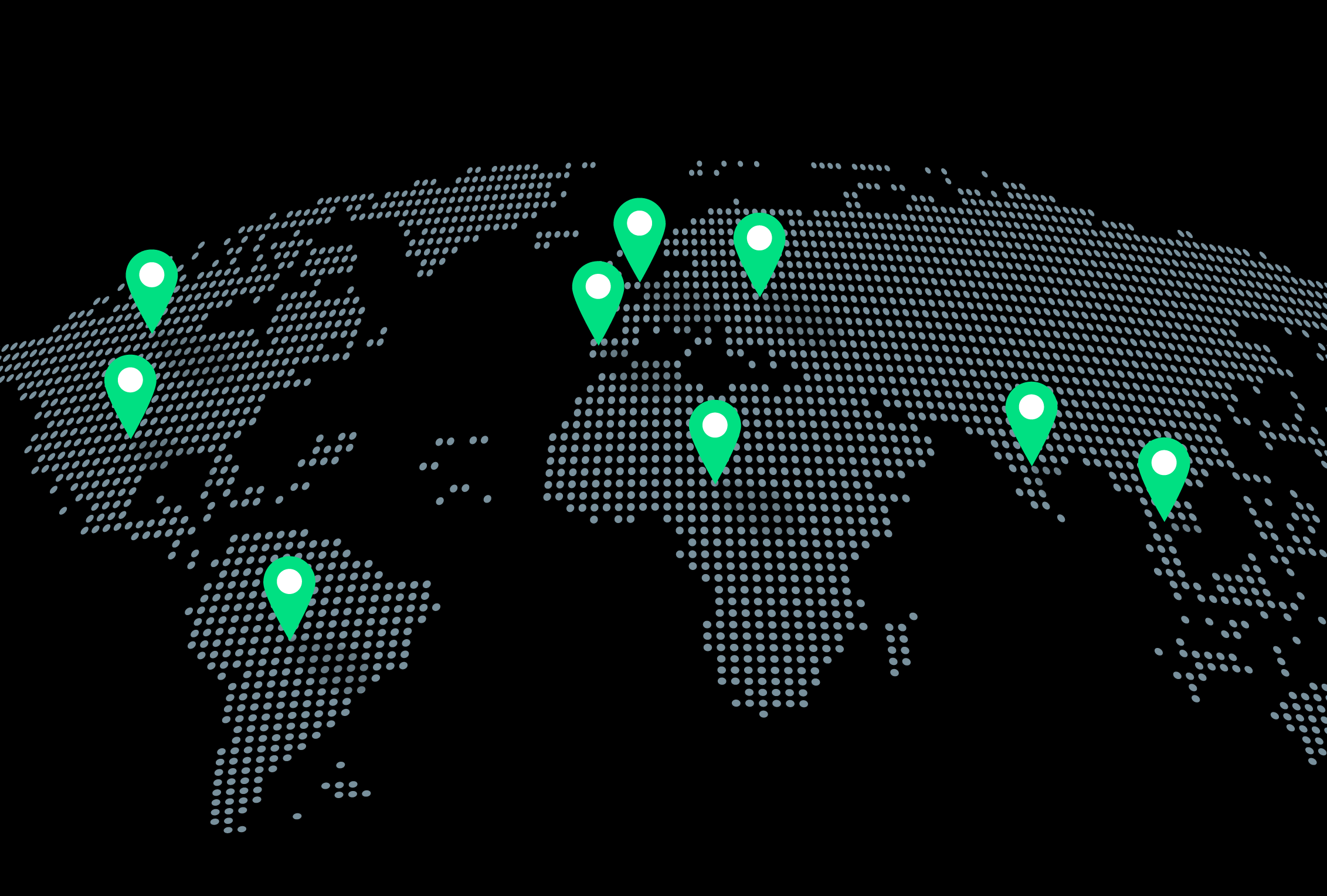
Typology of organizations
Regarding the organization's typology and as an example of the diverse ecosystem of EdTech solutions, the majority of received solutions, 69%, are from Startups, 17% from SMEs, 6% from Corporations, 5% from Foundations and 3% from Universities.
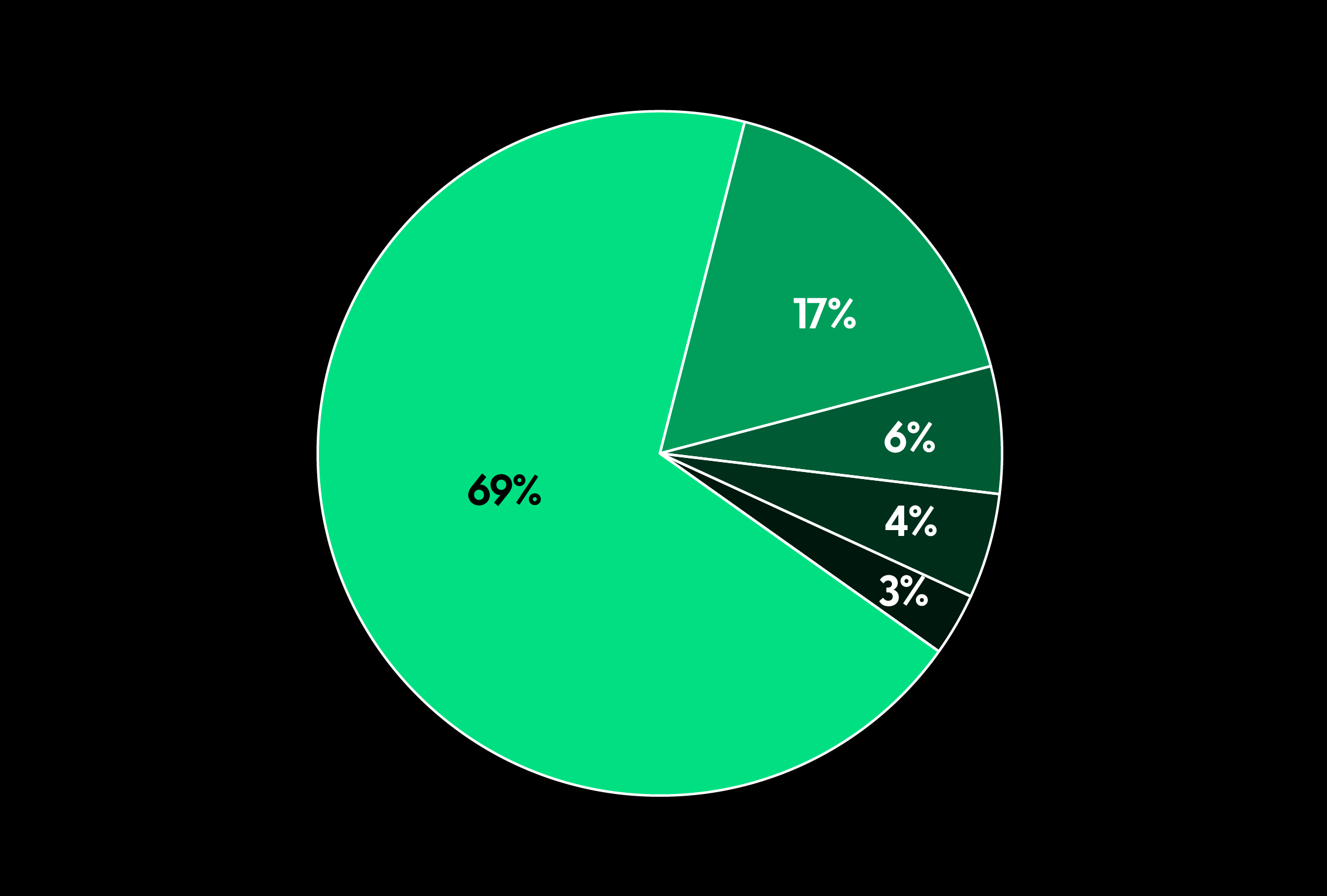
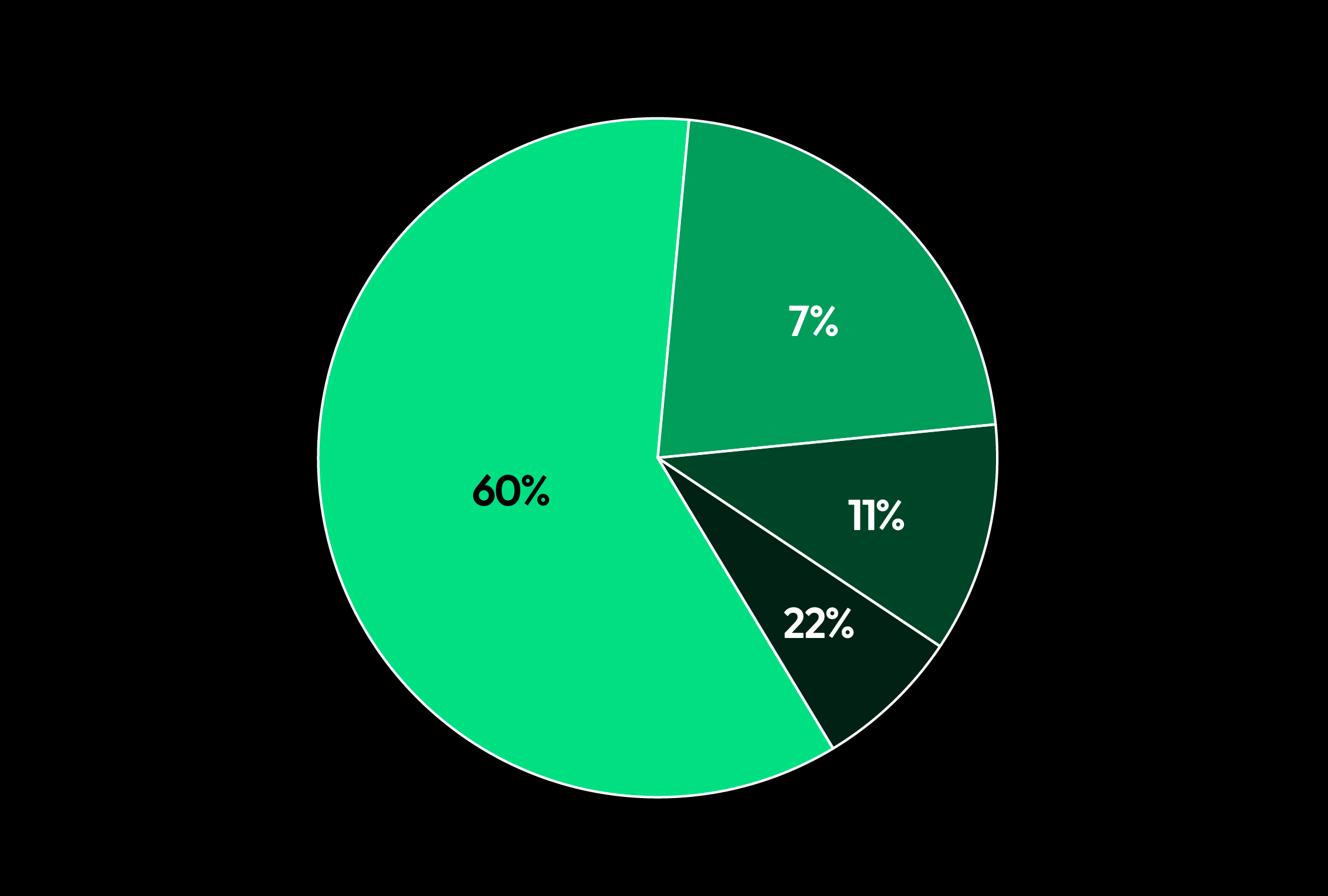
Variety of technologies
About the suggested technologies, the majority, 60%, are platforms or Apps. Then 22% are solutions that use Artificial Intelligence, followed by 11% of proposals that use Immersive Technologies (Virtual Reality, Augmented Reality and Mixed Reality) and, finally, 7% use other technologies such as Robotics, 3D and different types of Hardware.
Evaluation process
The first evaluation round to identify innovative digital solutions contributing to motivation, personalization of learning, and academic success concluded with 16 semi-finalists. Based on additional information about the future pilot’s implementation in schools, six finalists were selected to present their initiative at the Pitch Day at the end of March.
An external jury of representatives from Academia, Public Administration, the EdTech Industry and Educational Centers selected both winning proposals, “Annie Advisor” and “Troba la insignia per al teu futur”, which will be adapted and piloted within the 2024-25 school year in public and charter schools in Catalonia.
Piloting in Educational Centers in Catalonia
Once the two winning proposals were selected, work sessions were initiated with the chosen schools to plan the scope of the projects and ensure a successful implementation for both parties.
The pilots began in 10 public and semi-private schools in Catalonia and will be implemented throughout the 2024-2025 school year.
Beyond a rigorous evaluation of the impact of the pilots, we will share the learnings and conclusions that may be of interest to the entire educational community.
Schools involved in the pilots
These are the schools piloting the winning solutions:
Annie's Pilot
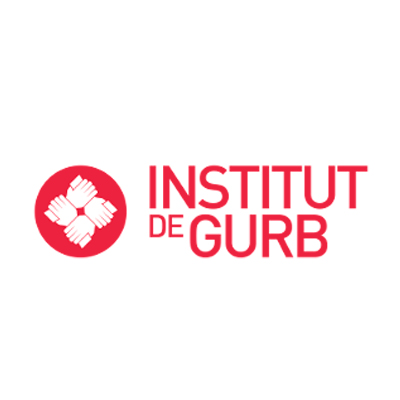
INS de Gurb
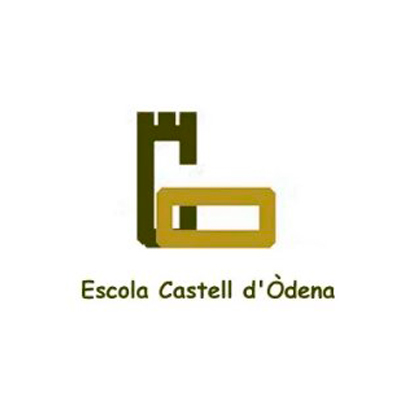
IE Castell d'Òdena
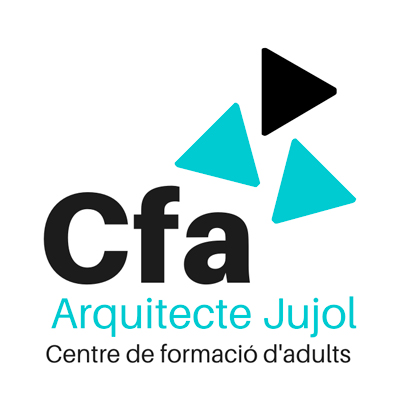
CFA Arquitecte Jujol
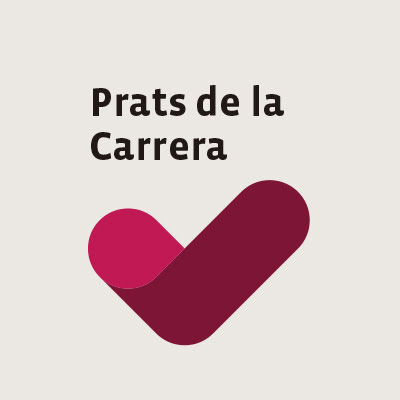
Vedruna Prats de la Carrera
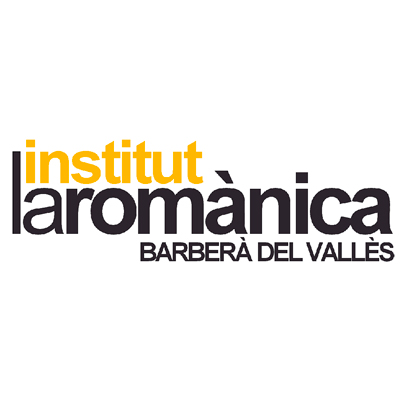
INS La Romànica
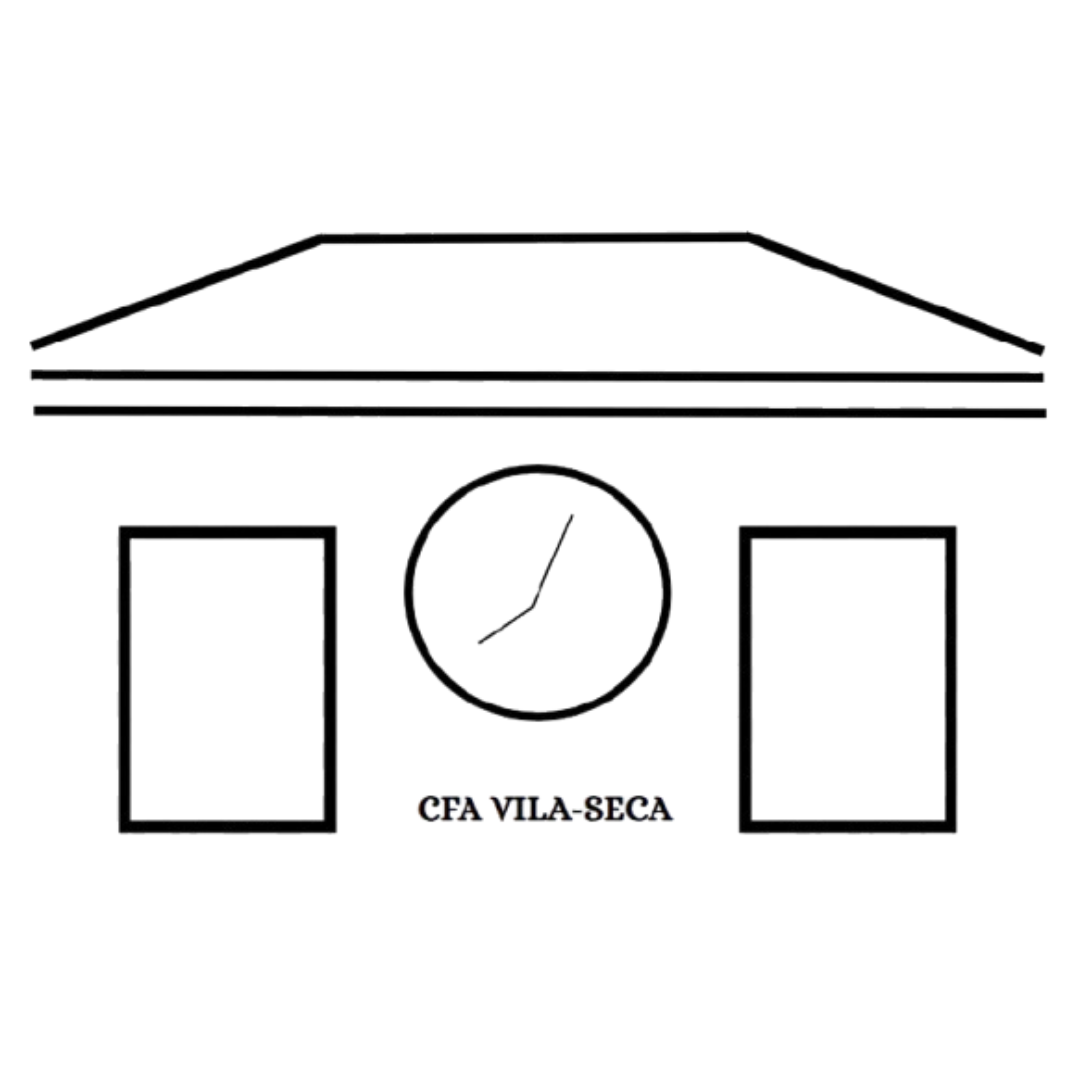
CFA VilaSeca
Nexes' Pilot
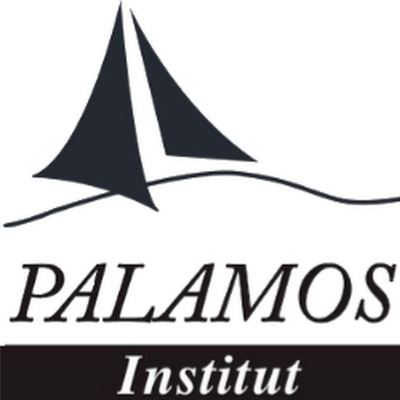
INS Palamós
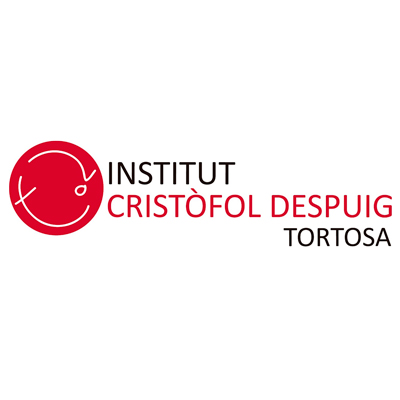
INS Cristòfol Despuig
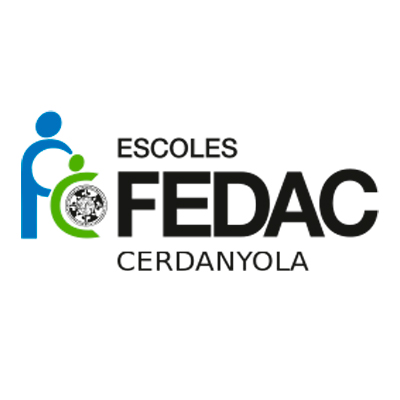
FEDAC Cerdanyola

Vedruna Prats de la Carrera
Objectives and phases of the pilots
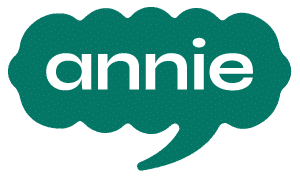
Objectives and phases of the pilots
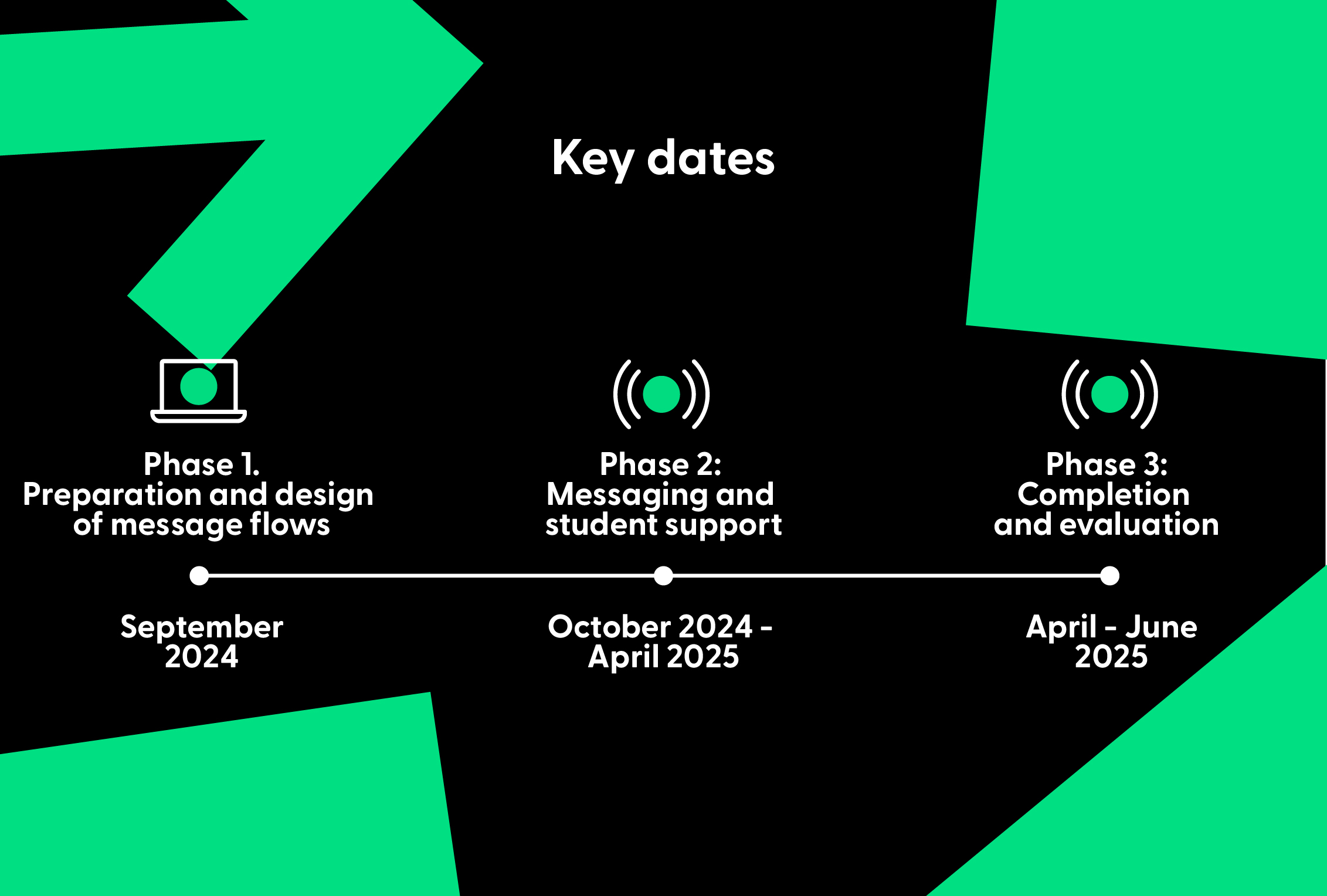
Phases and timeline
Phase 1: Preparation and design of message flows
- Workshops to design chatbots.
- Planning how and when to send the messages.
Phase 2: Messaging and student support
- Updating message templates based on feedback, and resending as needed.
Phase 3: Completion and evaluation
- Future recommendations, summary, and analysis of results.
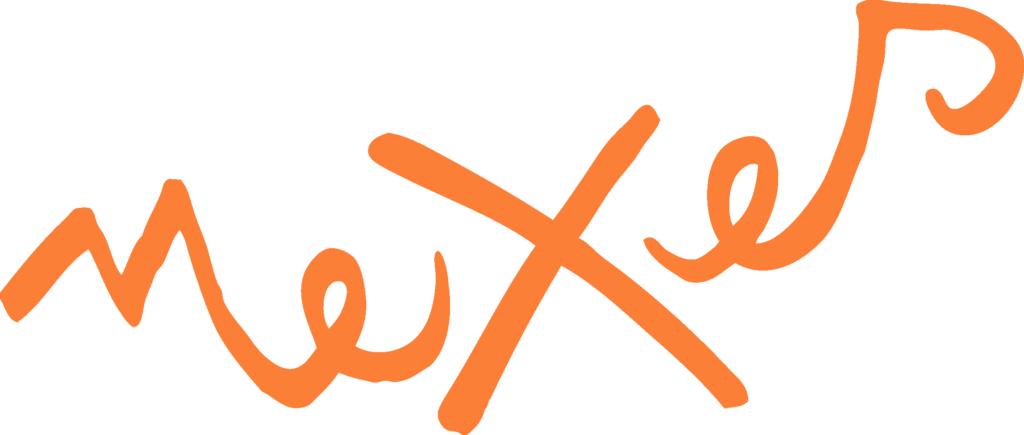
Objectives
Phases and timeline
Phase 1: Diagnosis of student interests and context
Phase 2: Digital system design – Playlists
Phase 3: Playlist implementation
- Use badges to recognize students’ micro-learning achievements inside and outside the classroom.
Phase 4: Completion and evaluation
- Future recommendations, summary, and analysis of results.
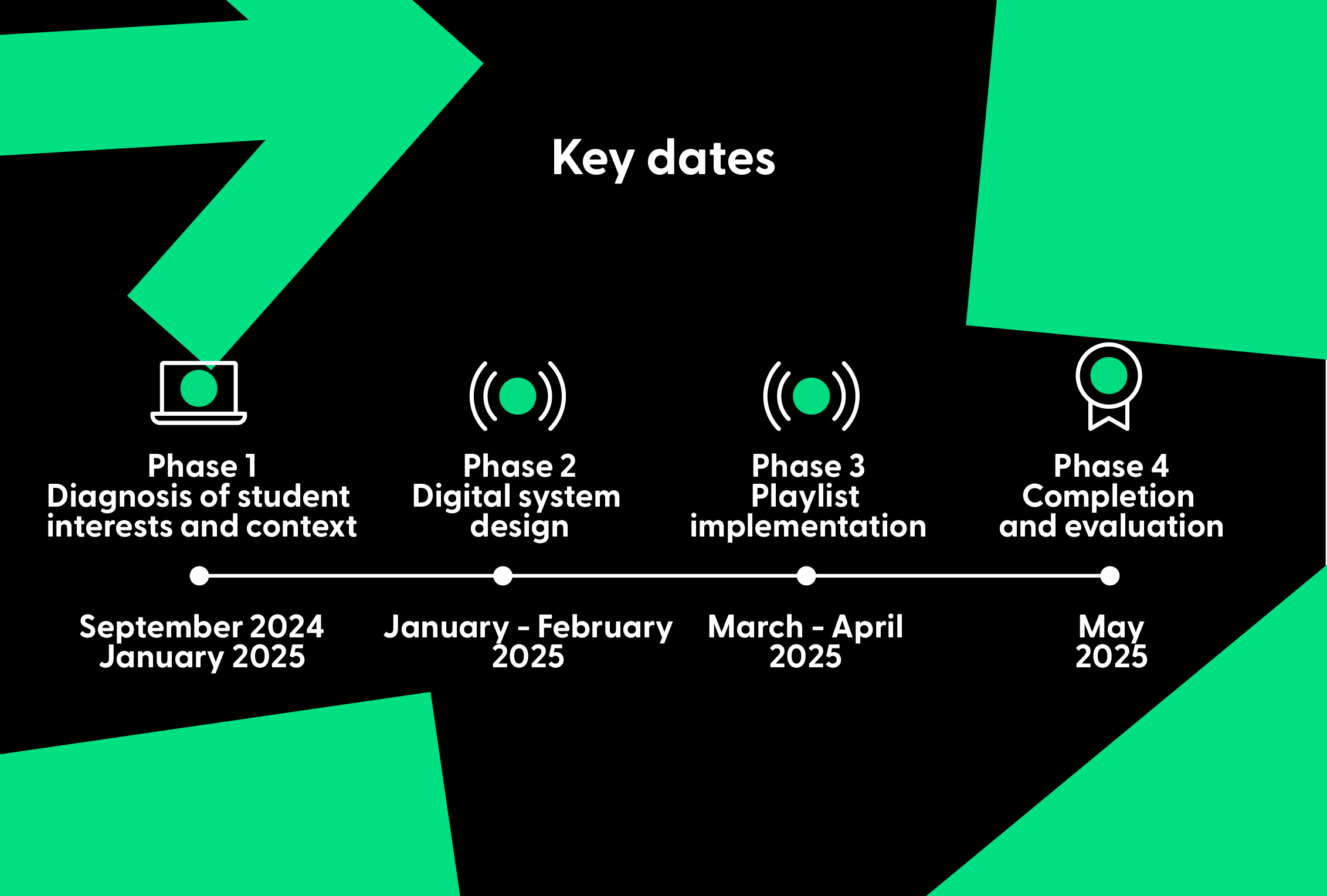

Support and evaluation
During the pilot phase in schools, the involved teachers will receive support from the teams of the two winning proposals and the mSchools Lab team. Additionally, as part of the process, an external academic institution, specialized in the selected topics, will conduct a continuous evaluation to assess the impact of the digital solutions and share the obtained results and learnings.
Join the #mSchoolsLab community to stay updated on all the details!
If you want more information about the mSchools Lab call, follow the process closely, or are interested in participating in future pilots in schools, sign up now through the following form.
For any questions, feel free to contact us by sending an email to lab@mschools.com
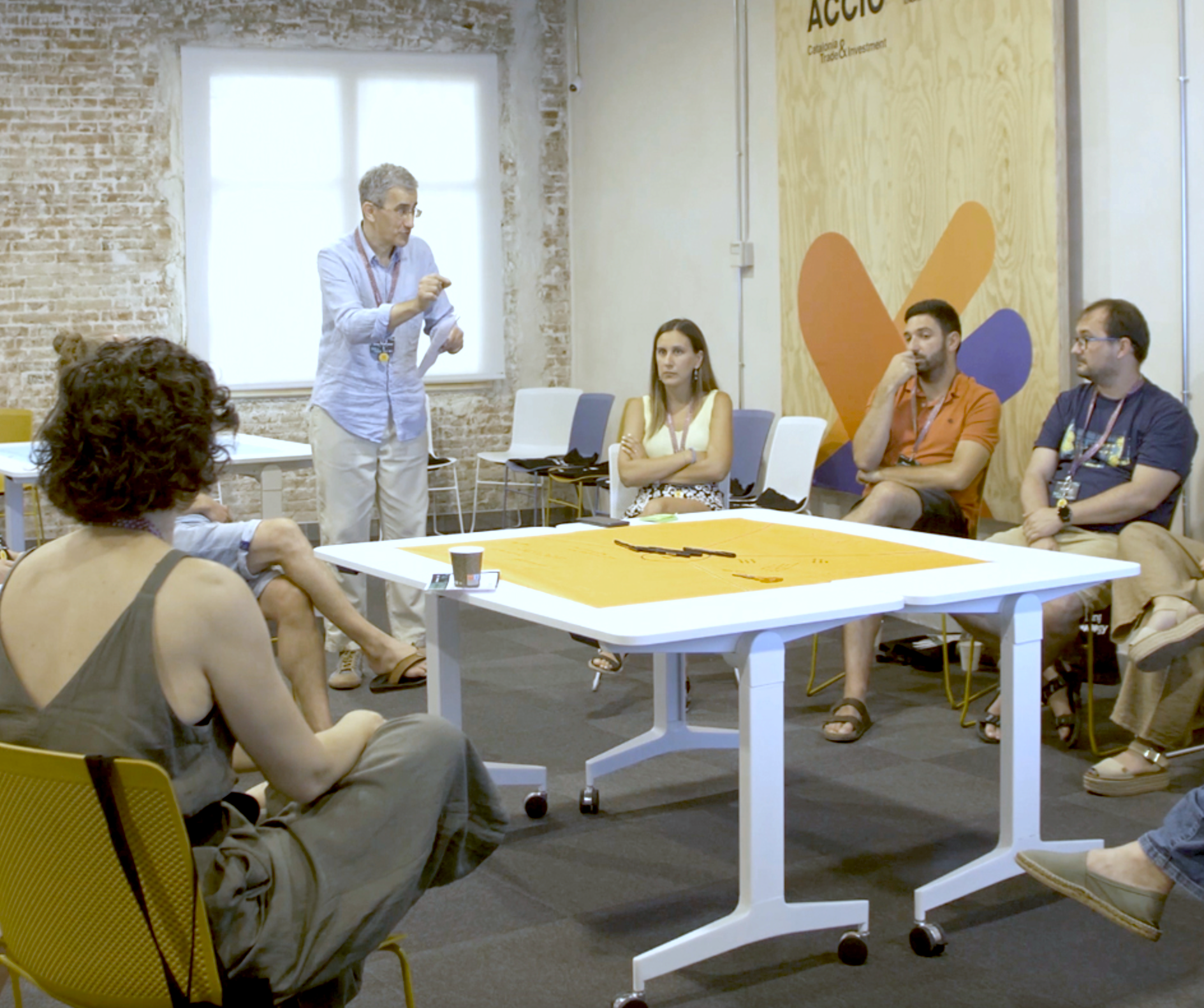
Closing the first cycle of the pilots
In early July, we brought together teachers from the participating schools to reflect on the lessons learned during the first cycle of the pilot projects (school year 2024–2025).
The meeting provided an opportunity to share everyday classroom challenges, identify resources with strong transformative potential —both digital and non-digital —and explore opportunities for improvement and growth.
Key learnings included
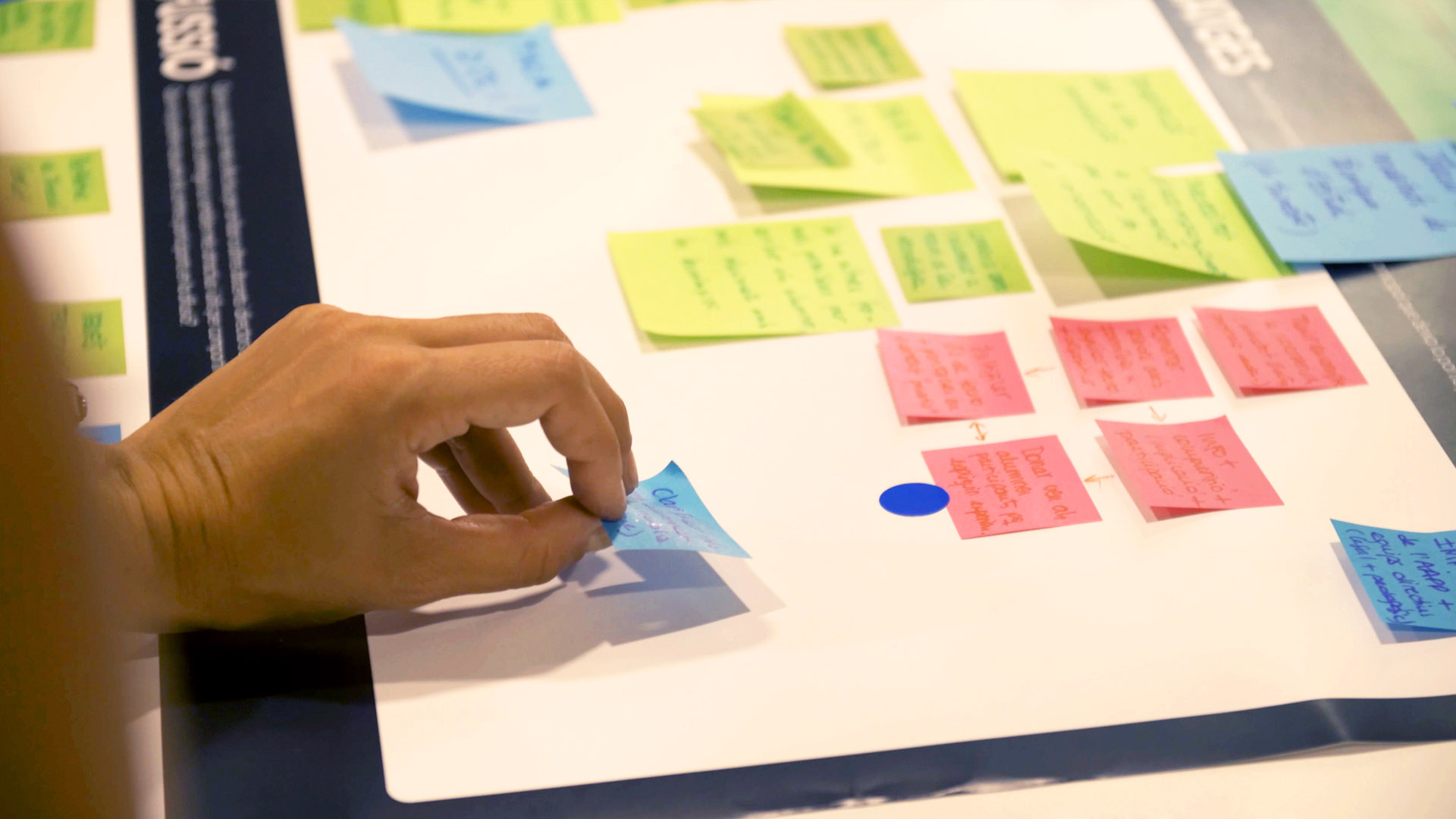
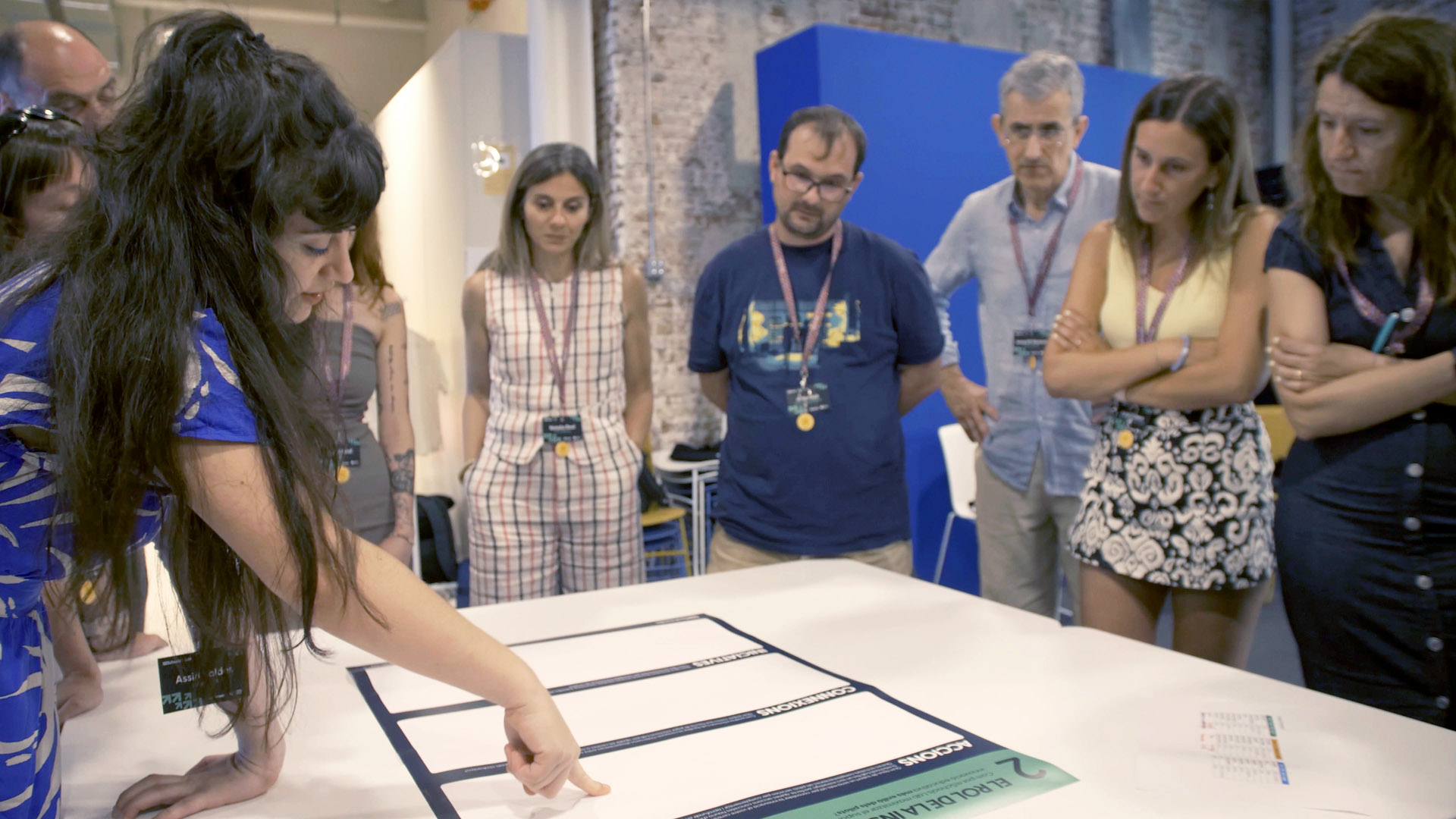
Looking ahead: The second cycle
Next school year (2025–26), the pilots will enter a new phase, with adjustments designed to deepen and maximize their educational impact.
At the end of this second cycle, we will share new insights and results that may be of interest to the entire educational community.
In the meantime, we remain committed to addressing the challenges and seizing the identified opportunities.


